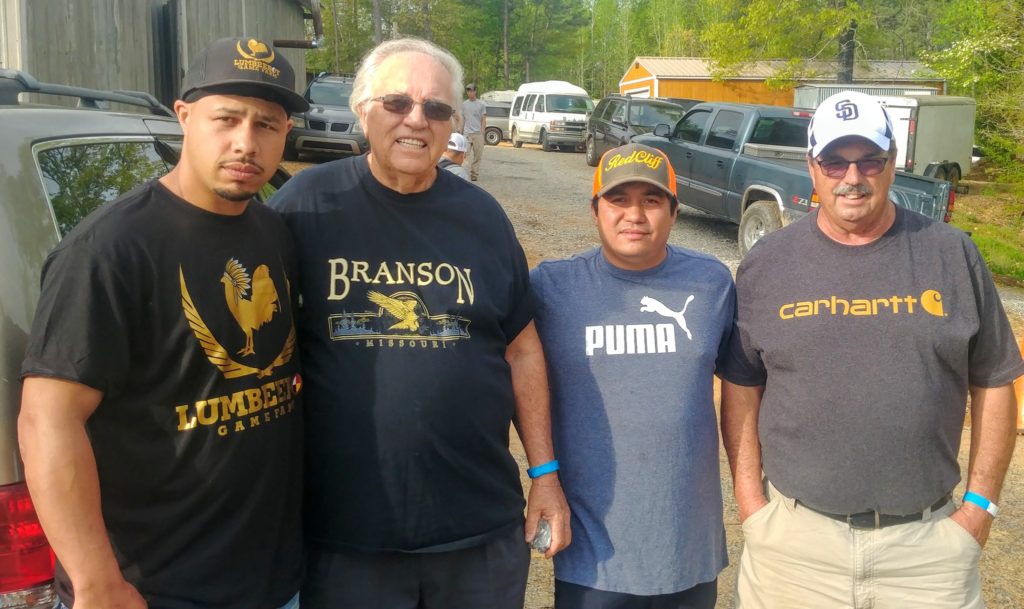
I’m a father to two great kids, husband to my loving wife and CEO of a residential and commercial renovation company. At 32 years old, I’ve had a lot of success and I see an even brighter future with my fowl and business. Most people, outside of the game fowl world, don’t understand the impact of raising fowl from such a young age has had on my life. I remember as a child my father gave me an ultimatum, “you either take care of these birds or I’m going to get rid of them”; I knew at that time raising fowl was something I wanted to do and it has paid off tremendously. Dedicating my time with fowl at a young age kept me out of trouble and gave me a great sense of responsibility. To this day my parents are still big supporters.
Mhar Delaben: Tell us about how you lived your life as a game farm owner, breeder and a cocker?
Anthony Bug: As a game fowl breeder who works a “9-5”, I deal with people who know absolutely nothing of the game fowl world and then there’s life as a cocker. Being a breeder has many challenges and it demands lots of money, is cause for sleepless nights, and constant worry about the welfare of the fowl but overall the love of the fowl makes life worth it.
“Being a breeder has many challenges and it demands lots of money, is cause for sleepless nights, and constant worry about the welfare of the fowl but overall the love of the fowl makes life worth it.”
~ Anthony Bug Morton
Mhar Delaben: How did you get into this sport?
Anthony Bug: As a Native American from the Lumbee Tribe of NC, raising animals including game fowl is something my family, friends and those around me have always done. My love for gamefowl came from my grandfather who instilled in me a love to compete and better the breed.
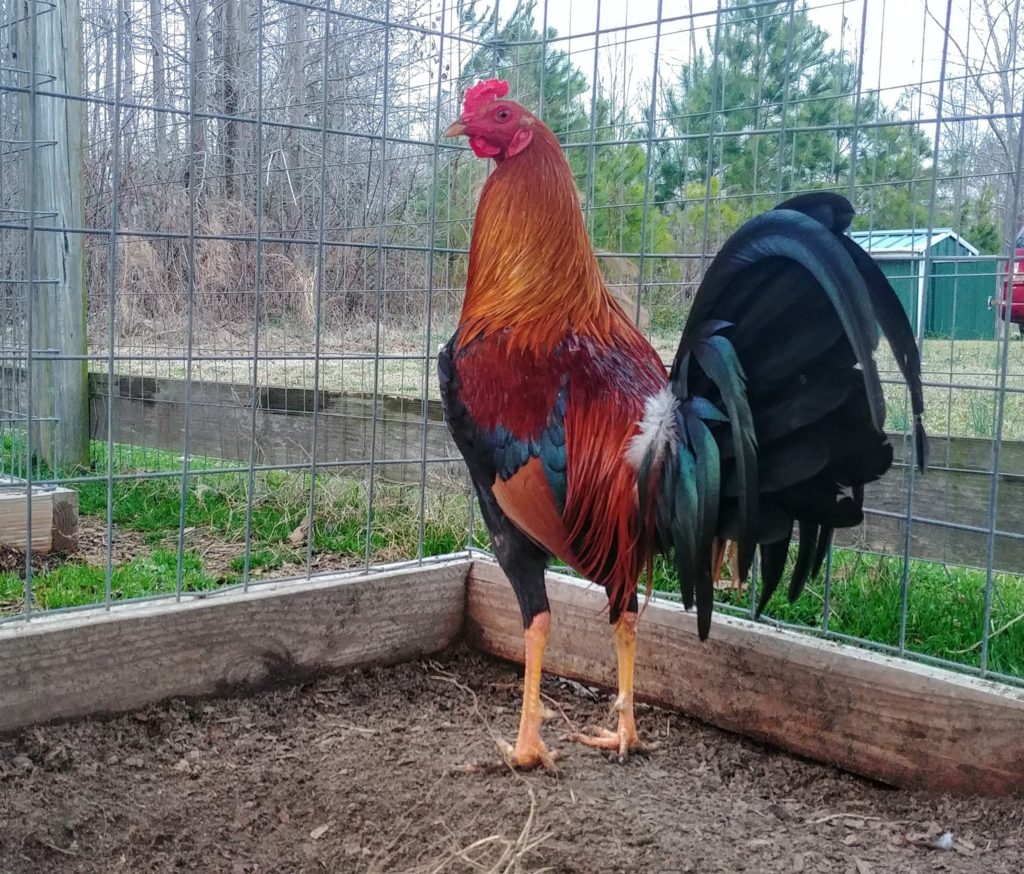
Mhar Delaben: Where it all started breeding gamefowl?
Anthony Bug: It all started with some brood fowls I had from my grandfather and a few other fowl that I bought at $40 and $50; I quickly learned the importance of a good bloodline and I eventually culled everything except the brood fowls that were passed down from family; these being my BlueFaces coming directly from Oscar Akins’ Game Farm. Looking back on the beginning of LumbeeBoy Game Farm is funny now but it was not so much then when I took my girlfriend now wife’s, $4000 tax refund and bought the best broodstock money could buy. We sacrificed our wants and some needs but in the end, the reward today has been well worth the sacrifices.
Mhar Delaben: How do you manage your farm and game fowl effectively?
Anthony Bug: I’m a bit OCD when it comes to the cleanliness of my farm. I keep my yard and waters clean, and I maintain a good daily feed mix. I also take the time to wash my fowl and regularly vaccinate, worm and handle my fowl. I also raise what some people call late hatch chicks and due to high PH levels and nitrogen in my soil, I am able to raise bigger and healthier fowl.
I raise chicks what some people call late hatch because of the p.h levels and nitrogen is high and grows bigger and healthy fowl for where I’m at.”
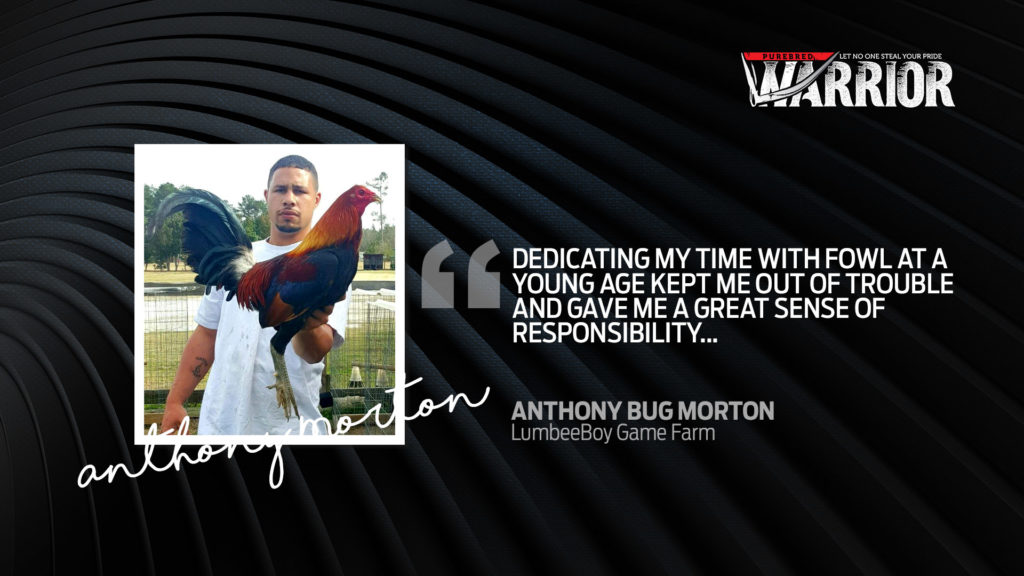
Mhar Delaben: What supplement or enhancers do you use during the keep?
Anthony Bug: A good buddy of mine, Mark Bullard, who as a feeder, has created a great feeding method he uses on my fowl to include B5500 and equipoise once a week along with liquid ions, amino acids, and liquid proteins daily. He begins by working the fowl lightly and work them up with flies, flips, climbs, flirts and back down.
Mhar Delaben: What were your biggest challenges dealing with this farm and fowls?
Anthony Bug: The biggest challenge I face, as I’m sure most breeders do, is maintaining a healthy and clean environment and preventing sickness in the fowl.
Jason Daniels and I talked about how every year that one line percentage can go up and down each year very challenging maintaining that.
Mhar Delaben: How systematic are you when it comes to recording?
Anthony Bug: I am very systematic with my breeding and marking. My eggs are separated by breed in my incubators and as soon as they hatch, they’re marked and recorded. I also utilize leg and wing bands for identification purposes. It’s to the point when a buyer says I want more of a specific fowl, I say tell me how they are marked and I’ll show you the hen and rooster that produced them.
Mhar Delaben: Are there any intruders on your farm and destroy any properties you have?
Anthony Bug: I had a fox years ago killed some brood stock, but overall I have no issues with intruders; a lot of that is a result of having great working dogs to keep watch and protect the fowl from intruders.
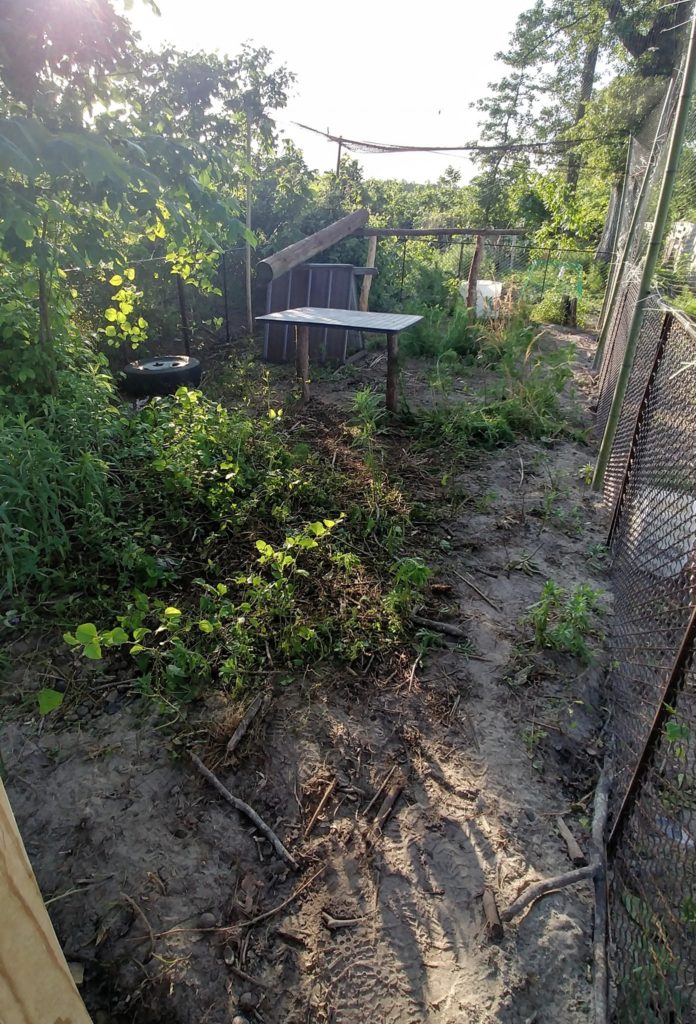
Mhar Delaben: What is the greatest challenge of a breeder?
Anthony Bug: The greatest challenge as a breeder is maintaining the bloodline. A good buddy of mine, Jason Daniels and I, were just talking about how every year that on each bloodline the percentage of effectiveness can go up and down.
Mhar Delaben: Who influenced you to become a competitive individual in this industry?
Anthony Bug: A lot of people some of the larger scale names down to the in-home smaller breeder. We all the same. From my friends Mark Bullard, Marlon McNeill, Victor Cervantes, Redcliff, Jason Daniels, Kevin Harris, Patrick Jefferson, and Paige Wardlaw, just to name a few; these men have been a great support and encouragement for me and mostly without God none of this would be possible.
I’m always loading my pens with horse composite that has sat a year and wheat straw simple.
Mhar Delaben: What’s your thought about this jealousy roaming around social media?
Anthony Bug: It’s crazy. I’m always happy for the next man doing great things and I never look down on anyone. As for myself, being a smaller breeder who’s trying to expand, I have witnessed the jealousy firsthand. This sport is supposed to be a gentleman’s sport and I believe we need to support one another instead of tearing each other down.
Mhar Delaben: What bedding do you prefer for your fowl as a daily scratch?
Anthony Bug: I’m always loading my pens with horse manure compost and simple wheat straw.
Mhar Delaben: What is your feeding program consist of?
Anthony Bug: Simple 16 % protein GameCock mix for older fowl and for the hatchlings running the yard I use GameCock mixed with dog food soaked in electrolytes and other nutrients.
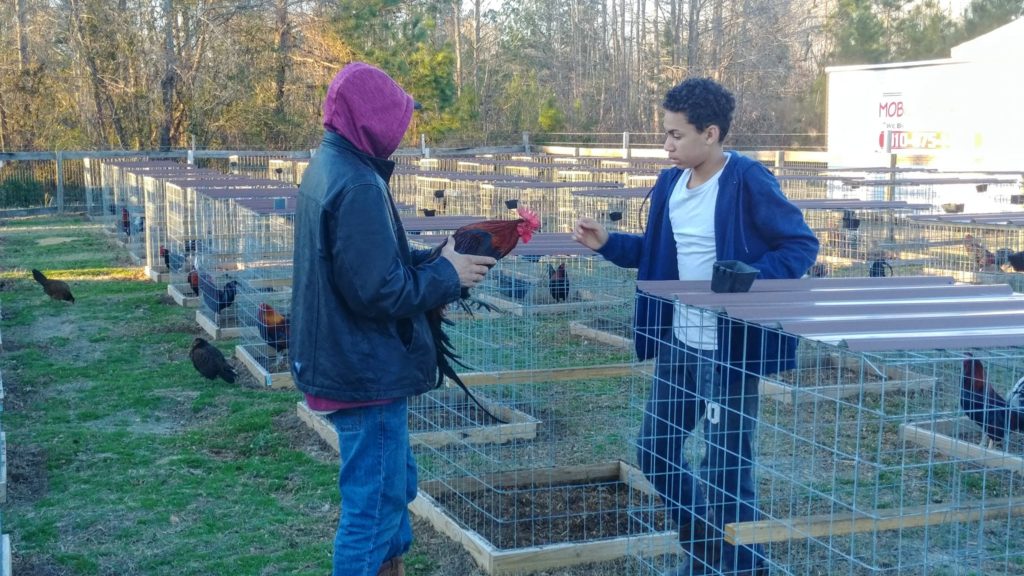
Mhar Delaben: Where do most of your fowl go each season?
Anthony Bug: I have sold fowl all over the US, here lately I’ve had a lot of interest out of Mexico, the great Philippines has always been a popular area and I’ve been getting some great feedback from Vietnam.
Mhar Delaben: What’s your advice to those who just starting breeding chicken?
Anthony Bug: My advice would be to have patience. Achieving a strong and consistent bloodline is not easy, however investing in the fowl, your equipment, being humble in asking and seeking knowledge of the sport, and making connections within the sport makes for the beginnings of a successful farm.
Mhar Delaben: Does this new digital magazine Purebred Warrior a help for you?
Anthony Bug: Yes, it’s a great source of information and recognition of people who are dedicated to this sport. Always something interesting to read and see, not to mention the live videos. ~PW
Disclaimer
Purebred Warrior reserves the right to accept or refuse materials for publication or advertising. Perspectives expressed by the authors and contributors do not necessarily reflect the opinion of Purebred Warrior.
No materials may be reposted or reprinted from this website without obtaining prior written consent from the publisher.
Facts contained in the articles refer only to circumstances when the sport of cockfighting was still legal in the United States. Articles were written with the purpose of recognizing a past American cultural heritage.
No game fowls will be sent to countries where cockfighting is illegal.
Please take note that cockfighting is legal in the Philippines. It is your responsibility to assess whether or not cockfighting is legal in the country where you stay.
About Post Author
2 thoughts on “Anthony Bug Morton”
Leave a Reply
You must be logged in to post a comment.
 A Call to Unity: Let’s Be as Game as Our Roosters
A Call to Unity: Let’s Be as Game as Our Roosters  Purebred Warrior Digital Magazine — Issue 27
Purebred Warrior Digital Magazine — Issue 27  ROMULO DOMINGUEZ BALBALIN CLINCHES SOLO CHAMPIONSHIP AT 2025 MASTER BREEDERS’ CUP11-STAG NATIONAL DERBY LATE BORN EDITION
ROMULO DOMINGUEZ BALBALIN CLINCHES SOLO CHAMPIONSHIP AT 2025 MASTER BREEDERS’ CUP11-STAG NATIONAL DERBY LATE BORN EDITION  Manok Ni Cano Gwapo: World’s Largest Rooster-Shaped Building Makes History
Manok Ni Cano Gwapo: World’s Largest Rooster-Shaped Building Makes History  FIESTAG 2023: Celebrating Success and Looking Ahead to FIESTAG 2024!
FIESTAG 2023: Celebrating Success and Looking Ahead to FIESTAG 2024!  The Passionate Gamefowl Breeder: An Interview with Jason Daniel
The Passionate Gamefowl Breeder: An Interview with Jason Daniel  The 2024 World Slasher Cup 2: A Legendary Showdown at the Smart Araneta Coliseum
The 2024 World Slasher Cup 2: A Legendary Showdown at the Smart Araneta Coliseum  GAB CHAIRMAN OVERSEES 2024 WORLD SLASHER CUP PRE-FINALS: THE PINNACLE OF COCKFIGHTING EXCELLENCE
GAB CHAIRMAN OVERSEES 2024 WORLD SLASHER CUP PRE-FINALS: THE PINNACLE OF COCKFIGHTING EXCELLENCE 

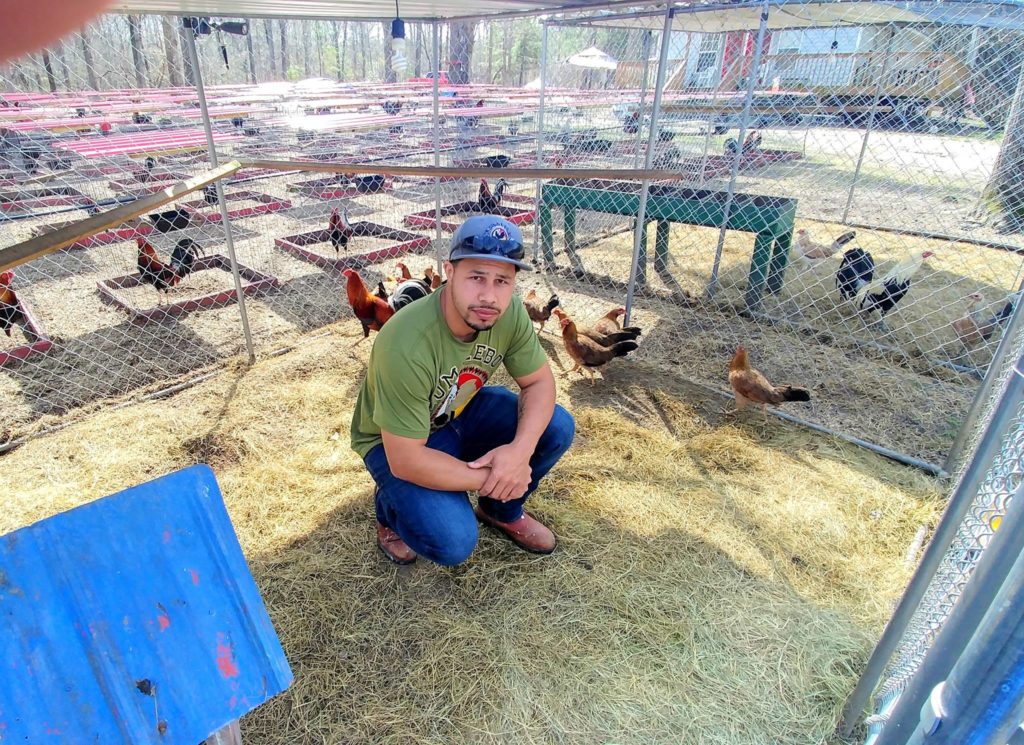
Very good read.
a trust-worthy person 🙂